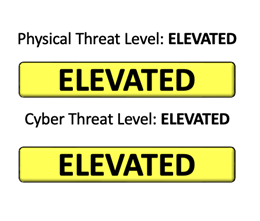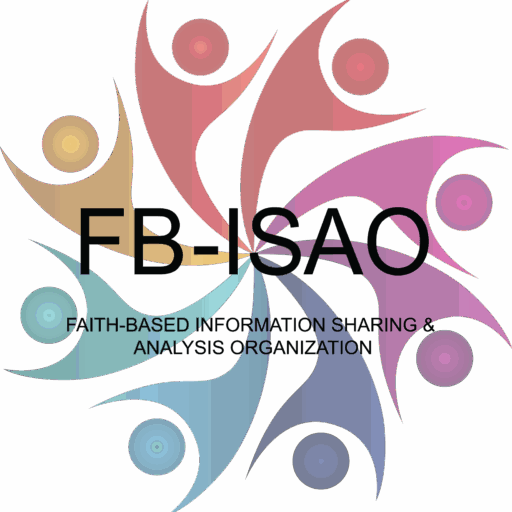Faith-Based Security Headlines
These updates are shared to help raise the situational awareness of Faith-Based organizations to best defend against and mitigate the impacts from all-hazards threats including physical security, cybersecurity, and natural disasters.
Data Leaked at The Catholic Cemeteries of the Diocese of Hamilton
On June 4, 2025, the Canadian funeral services provider fell victim to a ransomware attack orchestrated by the cybercriminal group INC Ransom. This incident is a reminder that cybercriminals will target any organization they find vulnerable that they feel could potentially lead to a payout.
INC Ransom, known for its multi-extortion tactics, typically exfiltrates sensitive data and threatens to leak it online if ransom demands are not met. In this case, the group published screenshots purportedly showing internal documents from The Catholic Cemetery indicating a potential compromise of confidential information.
Analyst Comments: This attack underscores the critical need for organizations across all sectors to implement robust cybersecurity measures, including regular system updates, employee training on phishing awareness, and comprehensive incident response plans. As a reminder Gate 15 is publishing a Summer of Security Ransomware Resilience Series that highlights the essential considerations for organizational leaders and cybersecurity professionals. This incident was captured in the Ransomware Data Leak Sites Report which is provided to FB-ISAO members on a daily basis. Click here to learn more about the benefits of membership!
The Cyble threat actor profile offers additional insights for those who would like to know more about INC Ransomware.
Restricting The Entry of Foreign Nationals to Protect the United States from Foreign Terrorists and Other National Security and Public Safety Threats
On June 4, 2025, President Donald Trump issued a proclamation titled “Restricting the Entry of Foreign Nationals to Protect the United States from Foreign Terrorists and Other National Security and Public Safety Threats.” This directive enforces a full entry ban on nationals from 12 countries; Afghanistan, Burma, Chad, Republic of the Congo, Equatorial Guinea, Eritrea, Haiti, Iran, Libya, Somalia, Sudan, and Yemen. This is due to deficiencies in their screening and vetting processes. Additionally, partial restrictions have been imposed on citizens from seven other nations, including Cuba, Venezuela, and Laos, limiting certain visa categories.
The administration cites concerns over inadequate information-sharing, high visa overstay rates, and non-cooperation in accepting deported individuals as justification for these measures. While exceptions exist for lawful permanent residents, diplomats, and specific visa holders, the policy has faced criticism for potentially targeting vulnerable populations and raising legal and diplomatic challenges.
Analyst Comments: This new proclamation underscores a renewed focus on national security through immigration controls. By imposing entry restrictions on countries identified as lacking robust vetting and information-sharing systems, the administration is a more aggressive approach to address perceived threats. While the stated intent is to prevent terrorist entry and enhance public safety, the policy also raises practical and diplomatic questions such as how it affects families, travel, and international cooperation. It serves as a reminder of the ongoing balance governments must strike between security concerns and broader humanitarian or geopolitical implications.
There’s a ‘ghost hurricane’ in the forecast. It could help predict a real one
A viral weather forecast showing a hurricane hitting the Gulf Coast in late June was likely a false alarm a so-called “ghost hurricane.” These appear regularly in early-season weather model runs, especially from the GFS (Global Forecast System), a U.S. model known for overpredicting tropical activity in long-range forecasts.
These “ghost storms” are common because the GFS is designed with a sensitive thunderstorm detection scheme, making it more likely to flag tropical development when conditions are only loosely favorable especially in regions like the western Caribbean Sea, where weather disturbances frequently occur.
Analyst Comments: Social media posts about looming hurricanes especially early in the season can be misleading, particularly when they’re based on long-range computer models that often don’t pan out. These so-called “ghost storms” are a regular feature of hurricane season and rarely develop into actual threats.
This is a good reminder that hurricane season is underway and preparedness should be a priority. Even if a specific forecast turns out to be wrong, the risk of real storms increases as the season progresses. It’s wise to review emergency plans, check supplies, and stay informed through reliable sources. Members are encouraged to review our Weekly Report on Hurricane Preparedness, published on 08 May.
Get the Daily Awareness Post Delivered to your Email!
More Faith-Based Stories
New Jersey parish employee pleads guilty to stealing nearly $300,000 from 2 churches
“Shut Down the MTC”: Provo Man Charged After Bomb Threats
Man arrested for threatening Pine Prairie priest, terrorizing another church
Man arrested for starting fire on Las Vegas church roof
Oklahoma City church vandalized for second time
Boulder Jewish Festival to proceed with heightened security after attack
Little Food Pantry In Vienna Temporarily Closed Due To Vandalism
United Church of Christ: Pride Has Always Been a Protest
Jewish cemetery vandalized in Serbia; antisemitic incidents reported in France
CISA at a crossroads amid workforce cuts, paused partnerships
These sectors were most targeted by active shooters in 2024
CISA at a crossroads amid workforce cuts, paused partnerships
Trump banning foreigners from entering U.S. to study at Harvard: Enhancing National Security by Addressing Risks at Harvard University
US govt login portal could be one cyberattack away from collapse, say auditors
DNI Releases FY 2026 Budget Request Figure for the National Intelligence Program
23 and You: The Privacy and National Security Implications of the 23andMe Bankruptcy
Healthcare Cybersecurity: Responding to Ransomware
Stay Ahead of Ransomware: Communication During a Cyber Incident
Severe storms to hammer central US on daily basis through Sunday
More Security-focused Content






